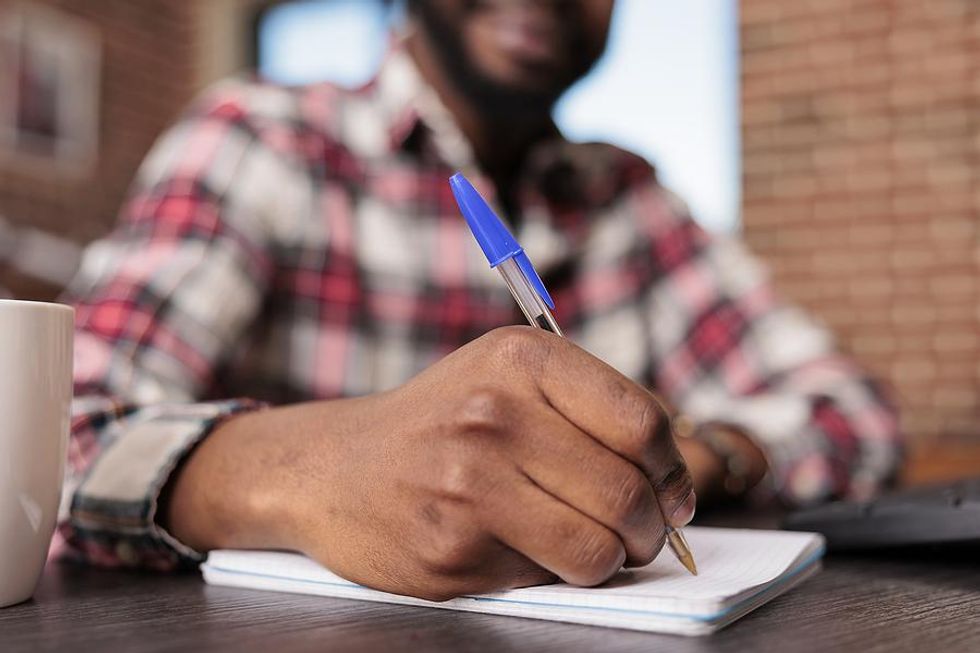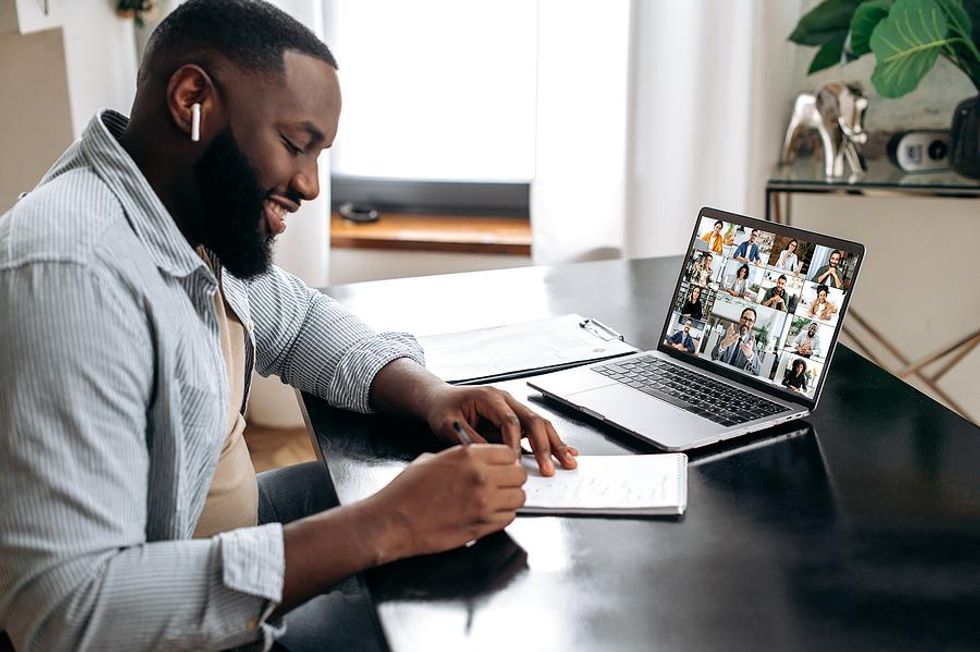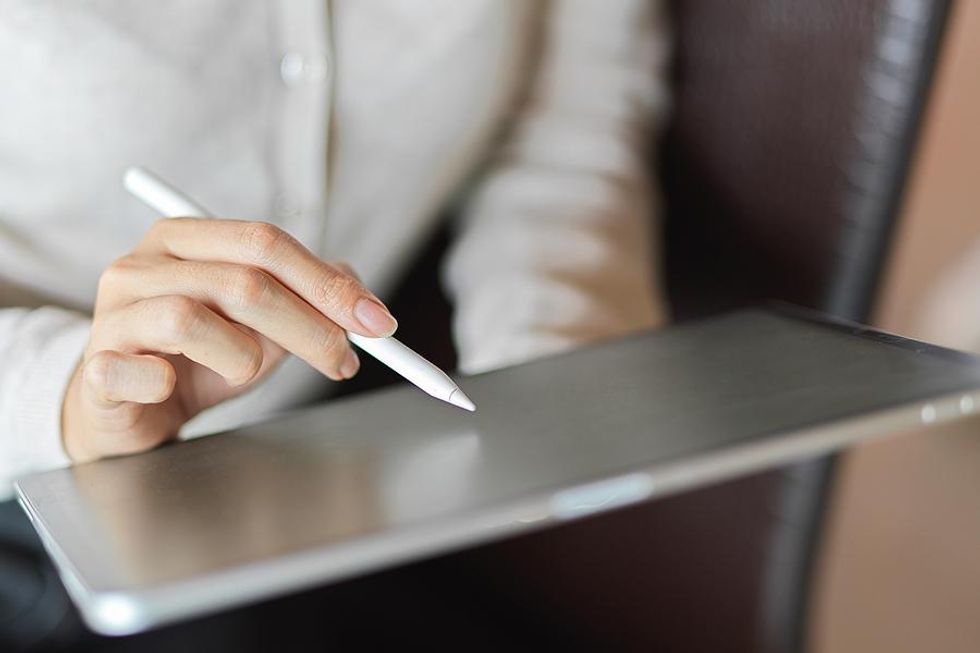
Why Does Taking Good Notes Matter?
I graduated college and graduate school many years ago. I took notes like crazy when I was in school, and they were my own cryptic code of the subject at hand. I thought I was “done” with this style of capturing information.
To this day, I keep a notebook within arms reach of me at work. Each meeting, phone conversation, and even some personal conversations get recorded in my notebook. Much of the time, I capture brief elements or tasks from a discussion. Other times, I have long volumes of knowledge written on the page. In my desk are many years of notebooks filled with these tidbits of past conversations.
School’s out, so why do I keep doing this?
My Memory Is Not What It Used To Be…

Bigstock
Let’s face facts. As I age, my memory declines. With stress, I forget many things discussed during a work day. Do I remember what I ate last week? I do not always remember what I had for breakfast this morning. Life throws so much information in our direction, how can we remember everything?
Write it down. Transfer the information from the short term to the long term. Allow pen and paper to serve as your memory.
I will misquote this… during an interview, Albert Einstein was asked for his phone number. He rose from his seat, opened a phone book, and pointed to his number. When asked why the smartest man in the world did not know his own phone number, the physicist answered, "Why would I remember something trivial when it is written down?"
Use note-taking for your long-term memory support. If it is written down, the information can be referenced at any time with minimal need for recollection.
My Notes Have Saved My Behind More Times Than I Can Count!

Bigstock
Ever disagree with a customer on something said in a meeting? Did your boss recall a conversation differently than you? Do colleagues neglect to follow through on a task agreed upon? Do you get into disputes over dates, times, and actions from a meeting?
Remember the old notebooks? Just last week, I found meeting minutes from a discussion nearly two years ago, and I was able to show attendance at the meeting and a skeleton of the discussion. My customer denied being present, changed the terms of our agreement, and challenged me on the validity of our claim. Looking in the notebook, I showed he was present and agreed to bullet points in the conversation. We still needed to find a consensus between our perspectives; however, I was able to begin at a basic agreement the discussion had taken place.
Because my memory was not clear, and my customer’s memory was not either, my notes clarified our position. Dates, facts, attendance, and action items were stored for my retrieval.
Does Media Matter? (Written vs. Electronic)

Bigstock
For me, the answer is yes. I am a visual learner first and a tactile learner second. I need to have the physical motion of writing to help me reinforce a concept, capture knowledge, or learn a skill. Seeing it and making it real works well for me.
I have often wondered about the tablets which capture handwriting, and I have yet to make the jump. As a former PalmPilot user, I learned quickly that electronic capture did not work for me. Taking typed notes is a challenge as a self-taught typist. When I am creating the idea in my head, I can type very well. When I am transposing someone else’s thoughts, I am much slower than writing.
Use what works best for your learning style. The media only matters if it helps with comprehension. Auditory learners may record everything in their phone’s voice memos. Visual learners may benefit from a tablet to doodle their conclusions. Tactile people may prefer pen to paper like me. Use many techniques. Simply take the notes!
Tips And Tricks For Business Notes

Bigstock
Here are a few things which work for me. I suggest you try them and manipulate the ideas to fit your needs. Use these as my guidelines to help shape your own unique system.
- Date everything. Always put a date (and time) in the header. This date will help you index when searching for information.
- For meetings, record attendees. Make sure you capture as many of the participants in the conversation as possible. For accountability, know who was present.
- Title the subject. Identify specifically what was discussed in the conversation. Again, this habit defines the context and helps find the subject when searching.
- Use a symbol to designate actions needed. I “star” everything which is an actionable item for me. I can review my notes and easily find these tasks in the margin. Use something memorable to you—circle the task, highlight it, make it stand out on the page!
- Do not use full sentences. Use shorthand to help with speed.
- Do not capture EVERY SINGLE WORD. Focus on key points and elaborate as needed.
- Use a notebook or a single file for notes. Two dozen Post-it ® notes on your desk or 15 sheets of paper are ineffective. Limit the notes to a single source for archive. Multiple sources will increase the chaos!
Is This Note-Taking All Common Sense?

Bigstock
Professionals take a lot of training, spend years in school, or develop their expertise over many years of effort. I would like to believe this information is common sense everyone should know.
In my observations, many professionals do not have this skill nor prepare for it. Too many people walk into meetings with nothing in hand. Some bring phones and text or surf while meetings occur. Others grab the Post-it ® notes and decorate their desks with the colorful squares.
We all learn differently and have unique styles. My comments in this article reflect how I need to work, and I merely recommend ideas that have worked for me. Sometimes simply reading about another’s successful actions is enough to spark new behavior in yourself. My goal is to share my ideas to help someone struggling to make a modest improvement in their effectiveness.
If one person walks away with a general idea of how to improve their memory at work (or home), my message is well received. For others, they may not see value in my note-taking message. For those who took the time to read, I can only hope my recommendation will help you be more effective and efficient in recalling details. My note-taking has certainly helped me over time, and I hope it may be able to help you as well.
Thanks for reading, and make a note!
- 10 Little Things That Make A Big Difference To Hiring Managers ›
- 5 Tips For Writing An Unforgettable Thank-You Note ›









